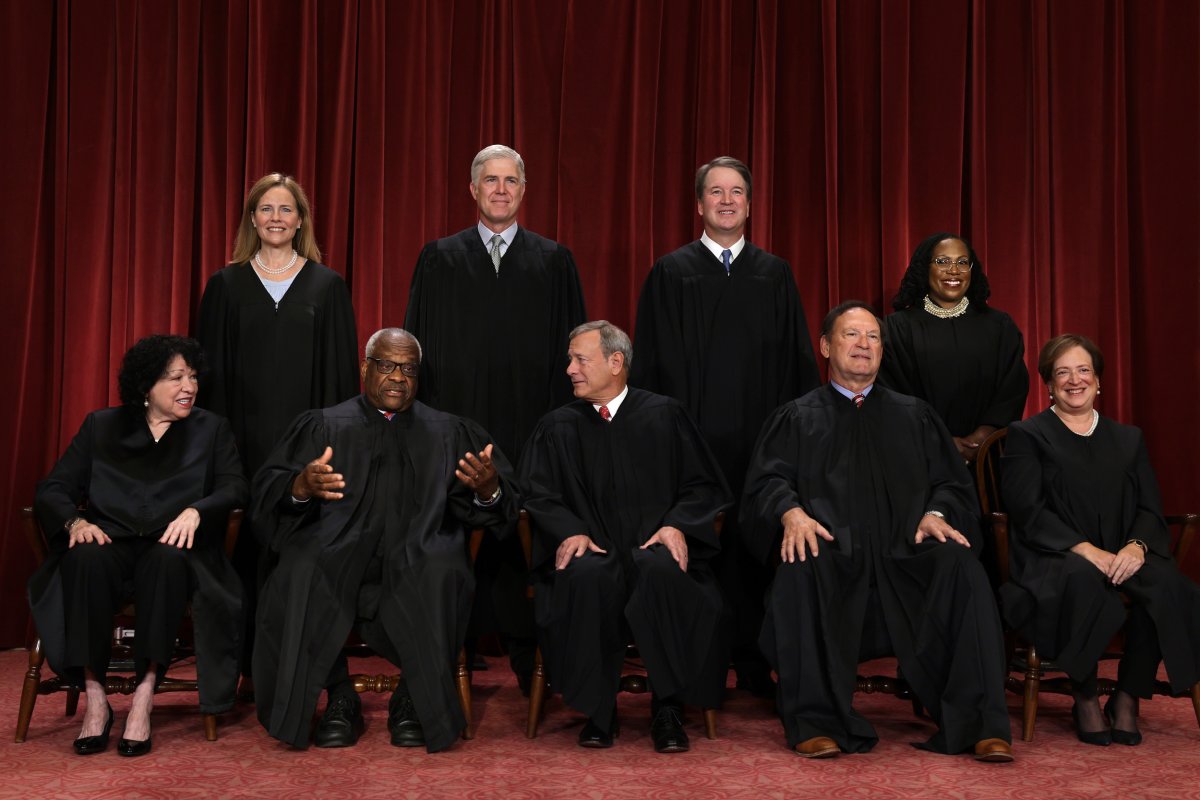The U.S. Supreme Court decision that struck down Roe v. Wade was cited in Uganda's decision to uphold an anti-gay law calling for the execution of those who practice "aggravated homosexuality."
The Constitutional Court of Uganda on Wednesday used the Supreme Court's decision in Dobbs v. Jackson Women's Health Organization as justification to largely uphold Anti-Homosexuality Act 2023, arguing that the U.S. court's conservative majority had established a new standard for "human rights jurisprudence" that places "history and traditions" over individual rights.
Dobbs, which in 2022 instantly criminalized abortion in many U.S. states, was cited as a "basis for the court decision" to uphold the gay death penalty law, which the Ugandan court said had been passed last year following "public outcry" over the supposed "forced recruitment of children into homosexual acts."
Uganda's constitutional court praised the U.S. Supreme Court's decision to strike down Roe v. Wade, writing that the court had "considered the nation's history and traditions, as well as the dictates of democracy and rule of law, to over-rule the broader right to individual autonomy."

The Ugandan court also cited an "absence of consensus at the global level regarding non-discrimination based sexual orientation, gender identity, gender expression and sex characteristics" as justification for the anti-gay law.
The law defines "aggravated homosexuality" as gay people who: engage in gay sex involving a minor; have HIV or disabilities; are elderly; or get convicted of non-aggravated homosexuality more than once.
Homosexuality not considered to be "aggravated" under the law is punishable by to a life sentence in prison, while "promoting" homosexuality carries a sentence of up to 20 years. Attempted homosexuality and aggravated homosexuality are punishable by sentences of 10 and 14 years, respectively.
While the death penalty for "aggravated homosexuality" was upheld, the constitutional court's decision did strike down some other parts of the law, including provisions that criminalized renting property "for homosexual purposes" and a requirement that Ugandan citizens "report acts of homosexuality" to police.
White House Press Secretary Karine Jean-Pierre, the first openly gay person to hold her position, called removing some provisions of the law a "small and insufficient step towards safeguarding human rights" in Uganda.
"[President Joe Biden] has said time and time again, no one should have to live in constant fear nor be subjected to violence or discrimination," Jean-Pierre told reporters on Wednesday. "It is wrong. We will continue to work to advance respect for human rights for all in Uganda and also around the world."
U.S. Secretary of State Antony Blinken had a similar reaction, saying in a statement that the law's intact provisions "pose grave threats to the Ugandan people, especially LGBTQI+ Ugandans and their allies, undermine public health, clamp down on civic space, damage Uganda's international reputation, and harm efforts to increase foreign investment."
The Biden administration did not address the Ugandan court's citation of Dobbs as justification for largely upholding the law. Newsweek reached out for comment to the White House and State Department via email and online press contact form on Thursday.
Passage of the law in Uganda last year sparked international condemnation and resulted in repercussions that have included U.S. sanctions and travel restrictions for Ugandan officials.
The U.S. Supreme Court's Dobbs decision intensified a political firestorm over abortion rights and prompted some to predict that the court's conservative majority would soon turn their attention to overturning other rights that some conservatives oppose, including protections for the LGBTQ+ community.
In his concurring Dobbs opinion, conservative Justice Clarence Thomas wrote that he hoped to "correct the error" of the Supreme Court's rulings in Lawrence v. Texas, Obergefell v. Hodges and Griswold v. Connecticut—which struck down anti-sodomy laws, established same-sex marriage equality and established the right for married couples to use contraception, respectively.
Uncommon Knowledge
Newsweek is committed to challenging conventional wisdom and finding connections in the search for common ground.
Newsweek is committed to challenging conventional wisdom and finding connections in the search for common ground.
fairness meter
To Rate This Article
About the writer
Aila Slisco is a Newsweek night reporter based in New York. Her focus is on reporting national politics, where she ... Read more
To read how Newsweek uses AI as a newsroom tool, Click here.






